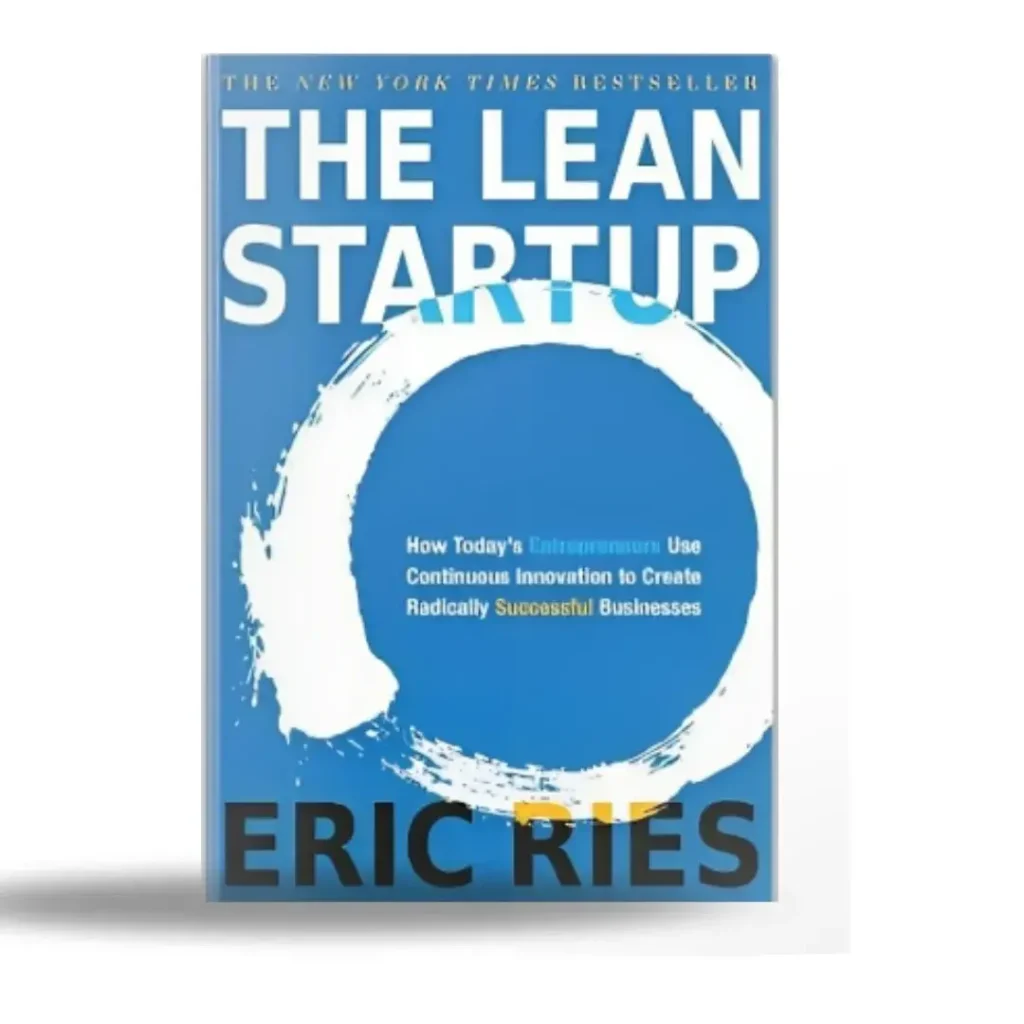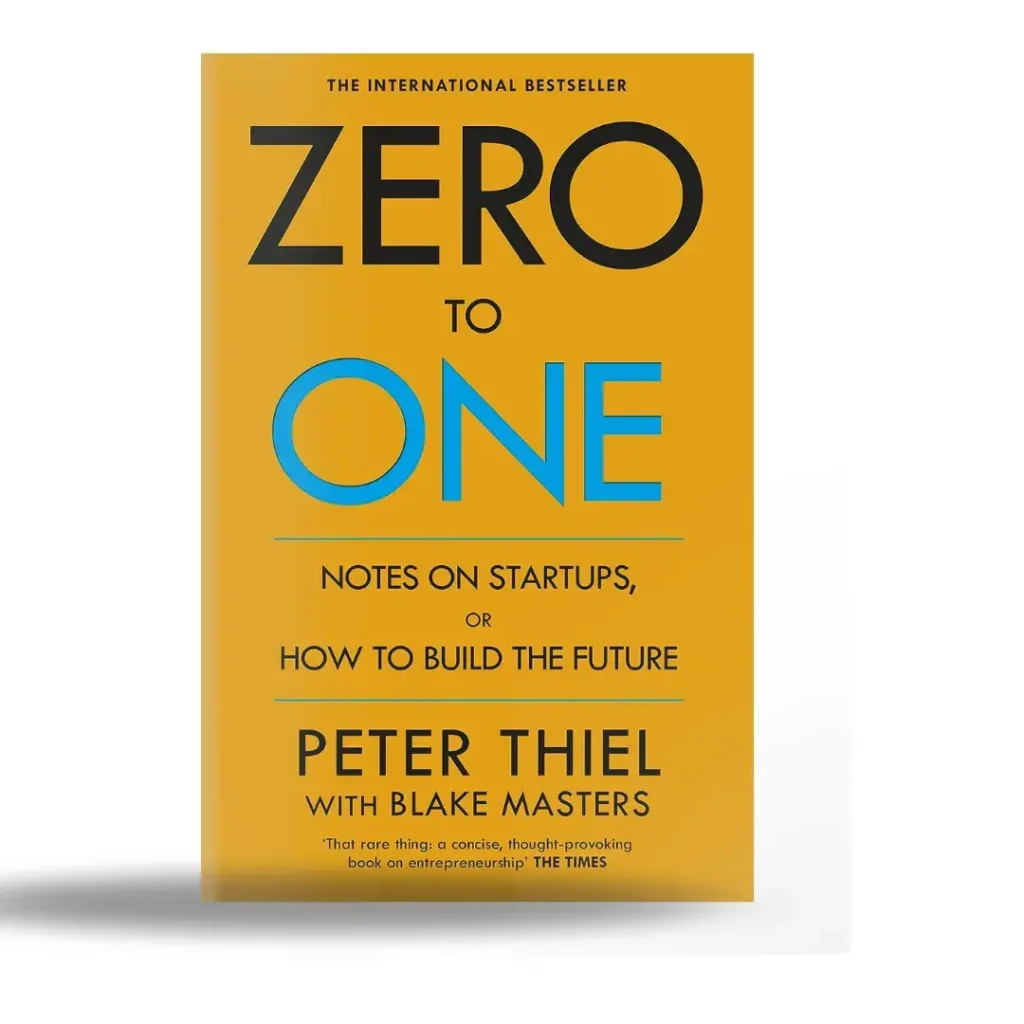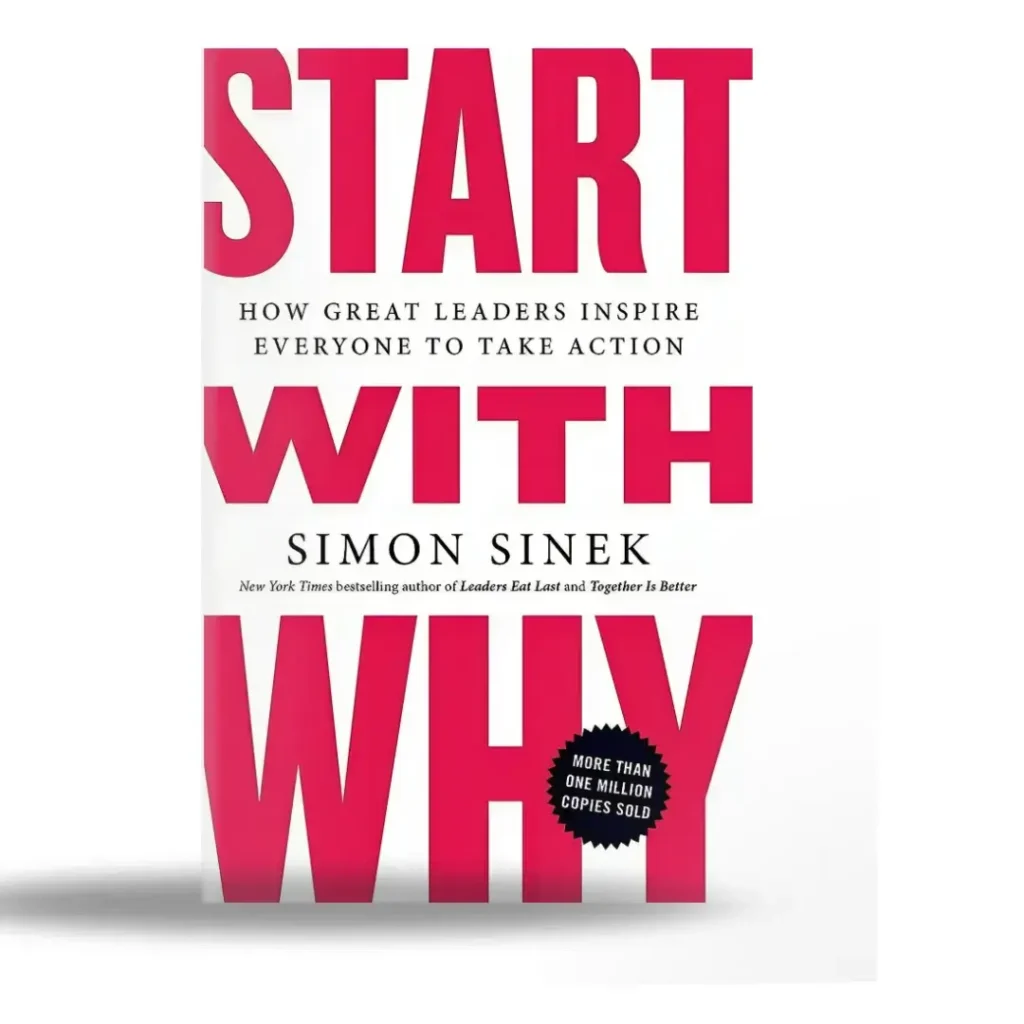Starting a business or growing one can be tricky, but books can help. The best books teach valuable lessons, spark ideas, and show you clear steps to take. If you’re wondering where to start, don’t worry—I’ve got you covered.
This list of the top 10 books for entrepreneurs includes easy-to-follow books on decision-making, marketing, leadership, and building strong businesses. No matter your stage, these books will inspire, guide, and give you tools to succeed. Ready to learn from the best? Let’s jump in!
1. The Lean Startup by Eric Ries
Launching a startup? This book is your roadmap. Eric Ries explains how to build and grow a business through constant innovation and learning.
Key Takeaways:
- Start small and test your ideas.
- Learn from your mistakes and pivot when necessary.
- Focus on creating value for your customers. For example, companies like Amazon have succeeded by obsessing over customer satisfaction. They revolutionized online shopping with innovations like Prime’s two-day shipping, which sets the industry standard, and algorithms that offer personalized recommendations, enhancing user experience. This relentless focus on customer needs has driven unparalleled growth and built deep loyalty. This approach not only builds trust but also ensures long-term loyalty.
Why It’s Essential: It helps entrepreneurs minimize risks while maximizing impact. This approach works whether you’re building an app or opening a bakery.

2. Zero to One by Peter Thiel
What makes a business truly groundbreaking? Peter Thiel explores the importance of creating something unique.
Key Takeaways:
- Avoid competition by building a monopoly in a niche market.
- Think long-term and plan for sustainability.
- Focus on innovation, not imitation.
Why It’s Essential: This book shifts your mindset to think bigger and create lasting value. For instance, it highlights the importance of identifying untapped opportunities in your market and creating products or services that not only solve immediate problems but also contribute to long-term growth and innovation.

3. Start with Why by Simon Sinek
Why do some businesses thrive while others fail? Simon Sinek explains the power of purpose.
Key Takeaways:
- Define your “why” before your “what” and “how.”
- Inspire loyalty by building emotional connections.
- Lead with purpose to motivate your team and customers. For example, Patagonia thrives by aligning its mission with environmental activism. For instance, its “Don’t Buy This Jacket” campaign encouraged consumers to think twice about purchasing, promoting sustainability over profit. This bold approach reinforced its purpose and resonated deeply with environmentally-conscious customers. This clear purpose not only inspires its team but also builds deep loyalty among its customers.
Why It’s Essential: A clear purpose sets you apart and builds trust with your audience.

4. Thinking, Fast and Slow by Daniel Kahneman
Great decisions come from understanding how we think. Kahneman explores the two systems of thought: fast and intuitive versus slow and deliberate.
Key Takeaways:
- Recognize cognitive biases that affect decision-making.
- Balance quick thinking with deep analysis.
- Use deliberate thought for big decisions. A practical framework from the book suggests writing down pros and cons while considering both short-term impacts and long-term goals. For example, an entrepreneur deciding whether to launch a new product could list immediate benefits like revenue growth versus long-term challenges such as supply chain management. This structured approach helps ensure thoughtful, balanced decisions. This helps entrepreneurs evaluate options logically and avoid impulsive choices.
Why It’s Essential: Entrepreneurs make decisions daily. This book sharpens your judgment and strategic thinking.
5. The 1-Page Marketing Plan by Allan Dib
Marketing doesn’t have to be complicated. Allan Dib simplifies it into a one-page strategy.
Key Takeaways:
- Identify your target audience and speak directly to them.
- Build systems to attract, nurture, and convert leads.
- Track and adjust your plan as needed.
Why It’s Essential: It’s perfect for busy entrepreneurs who need results without the fluff.
6. Starting a Business QuickStart Guide by Ken Colwell
Starting from scratch? Ken Colwell provides a step-by-step guide to launch your dream business.
Key Takeaways:
- Validate your idea before diving in.
- Understand the basics of business finances.
- Develop a solid business plan.
Why It’s Essential: This book demystifies the startup process, making it accessible for beginners.
7. Rework by Jason Fried and David Heinemeier Hansson
Tired of outdated business advice? Rework challenges conventional wisdom and offers a fresh approach.
Key Takeaways:
- Simplify your processes and focus on what matters.
- Embrace small teams and big ideas.
- Say no to over-planning and perfectionism.
Why It’s Essential: It’s a practical guide for modern entrepreneurs who value efficiency and creativity.
8. Blue Ocean Strategy by W. Chan Kim and Renée Mauborgne
Don’t compete—innovate. This book teaches you how to create new demand by entering untapped markets.
Key Takeaways:
- Focus on differentiation, not competition.
- Offer unique value to attract new customers.
- Use a structured approach to innovate.
Why It’s Essential: It helps entrepreneurs think strategically and avoid crowded markets.
9. The Art of the Start 2.0 by Guy Kawasaki
Starting something new? Guy Kawasaki’s updated guide is full of actionable advice for launching and sustaining success.
Key Takeaways:
- Focus on building value, not hype.
- Use storytelling to connect with your audience.
- Adapt and evolve with the market.
Why It’s Essential: It’s a motivational and practical read for entrepreneurs at any stage.
10. The Founder’s Dilemmas by Noam Wasserman
Avoid common pitfalls in the early stages of your business. Wasserman explores key decisions founders face.
Key Takeaways:
- Choose the right co-founders and team.
- Divide equity and roles fairly.
- Prepare for growth and potential conflicts.
Why It’s Essential: It provides a reality check and helps you build a solid foundation.
Final Thoughts
Starting and growing a business is no easy feat, but you don’t have to do it alone. These ten books offer invaluable lessons, practical advice, and inspiration to guide you along the way.
Pick one that resonates with your current challenges and dive in. Start with a book that addresses a specific issue you’re facing, set a reading goal—like one chapter a day—and jot down actionable ideas that align with your business goals. This focused approach will help you see immediate results. The best entrepreneurs are those who never stop learning. With these resources, you’re one step closer to building the business of your dreams.
Transparency Note: We receive no incentives for recommending these books. Our goal is to provide honest, actionable insights for your entrepreneurial journey.



